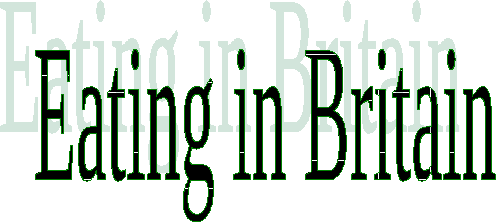- Преподавателю
- Иностранные языки
- Планирование по английскому языку Eating in Britain (7 класс)
Планирование по английскому языку Eating in Britain (7 класс)
| Раздел | Иностранные языки |
| Класс | 7 класс |
| Тип | Рабочие программы |
| Автор | Наубетова Г.Ш. |
| Дата | 17.03.2015 |
| Формат | doc |
| Изображения | Есть |
Open lesson

Done by: Naubetova G.
Ondy-2014
Form 7.
The aim of the lesson:
-
Educational:
-
to master new lexis and its use in speech;
-
to enrich pupils' knowledge.
-
Developing:
-
to develop pupils' skills and habits in monologue speech through asking questions, making up different conversation;
-
to develop pupils' speaking, listening and writing habits.
-
Bringing-up:
-
to teach pupils to respect Great Britain;
-
to educate the fillings of international friendship.
The method of the lesson: individual work, group work question-answer.
Visual aids: cards, pictures, diagrams.
The outline of the lesson.
-
Organization moment: a) greetings;
b) checking-up the attendance.
-
Checking-up the homework.
-
Worm-up.
-
New lesson.
-
Grammar.
-
Doing exercise.
-
Work with pictures.
-
New words.
-
Reading the text.
-
True or False.
-
Association.
-
Evaluation.
-
Giving homework.
-
The end of the lesson.
The procedure of the lesson.
-
Organization moment.
PP: Good afternoon, teacher!
T: Sit down please. Who is on duty today?
P: I'm on duty today.
T: Who is absent?
P: All are present.
II. Checking-up the homework.
T: What was your homework for today?
PP: Our homework was revision.
T: Good. Our lesson was about animals and and environment. Now answer some questions:
Where do tigers come from?
P: They come from Africa.
T: What colors is wolf?
III. Warm-up.
Today we'll speak about eating in Britain.
Let's read the dialogue.
Ex-1. Read and practice work in pairs.
IV. Introduction of new material.
The theme of our lesson is " Eating in Britain" and I hope known that from this lesson we'll get some information about eating in Britain.
While reading the dialogue you have known about food and drinks. Complete the chart.
Fruit Drinks Other food
Apples coke fish
Apricots tea eggs
Bananas milk fried potatoes
Oranges juice
V. Presentation of grammar.
You know the known the noun is divided into 2 forms. They are singular and plural forms.
Plural nouns end with -s or -es. They are countable.
But some nouns don't have plural form. They are uncountable.
For example: an apple- apples, a banana-bananas, but juice is countable.
VI. Doing exercise.
Ex.4. Read and write uncountable (u) or countable (c) next to the words.
VII. Work with pictures.
Looking at the picturesyou must write Fruit, Vegetable or Tableware. For example:
Fruit Vegetables Tableware
Apple carrots a spoon
Ex-7. Write "much" or "many".
-
We need …….. oranges to make orange juice.
-
I drink ……. milk-one liter a day.
-
He always puts…… salt on his food.
-
My car uses …… petrol.
-
They have got …… money. They are rich.
-
There are …… potatoes in the box.
VIII. Work with new words.
There are some new vocabulary words on the blackboard.
Food
Roast beef
Toast
Honey
You must read and translate the new words.
IX. Listening to the text. Listen to the text and then read it; if you understand the text " Eating in Britain"- do the exercise.
True (T) or False (F)
-
British food is very popular- F
-
British people eat Yorkshire pudding on Sundays- T
-
British people eat a lot of meat-T
-
They don't like tea very much- F
-
Breakfast is the chief meal of a day- F
-
They drink a lot of mineral water- F
XI. Association:
roast beef
roast potatoes Mineral water
Eating in Britain
Tea omelet
Bacon honey
XII. Evaluation.
XIII. Giving homework.
XIV.The end of the lesson.


